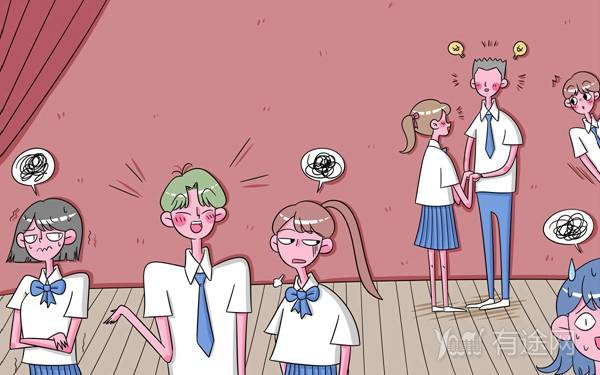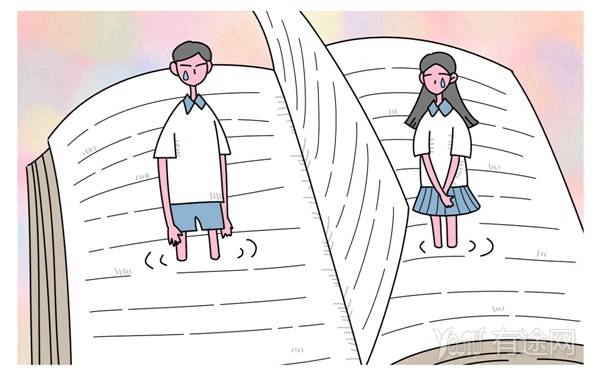第一部分 听力(共两节,满分 30 分)
做题时,先将答案标在试卷上。录音内容结束后,你将有两分钟的时间将试卷上的答案转涂到答题卡上。
第一节(共 5 小题;每小题 1.5 分,满分 7.5 分)
听下面 5 段对话。每段对话后有一个小题,从题中所给的 A、B、C 三个选项中选出最佳选项。听完每段对话后,你都有 10 秒钟的时间来回答有关小题和阅读下一小题。每段对话仅读一遍。
例:How much is the shirt?
A. £ 19. 15. B. £ 9. 18. C. £ 9. 15.
答案是 C。
1.How much will the woman pay?
A.$18. B. $21. C. $24.
2.What are the speakers going to do next?
A. Watch TV. B. Go to a concert C. Meet Amanda.
3.Where does the conversation probably take place?
A. At the tailor’s. B. In a photo studio. C. At the barber's.
4.What are the speakers probably talking about?
A.A camping trip. B.A shopping list C.A party.
5. What does the woman think of shopping online?
A. Cheap. B. Convenient. C. Unreliable.
听第6段材料,回答第6~7题
6. How does the woman feel about the dance competition?
A. Excited. B. Nervous. C. Confident.
7. What is the woman looking forward to most?
A. Dancing in front of many people.
B. Watching good dancers on stage.
C. Making some good new friends.
听第7段材料,回答第8~9题。
8 . What was the man's opinion about the film?
A. Amusing. B. Scary. C. Boring.
9. Who did the speakers think act well?
A. Shea Whigham. B. Danny McBride. C. Walton Goggins.
听第8段材料,回答第10~12题。
10. What is the man most likely to be?
A.A sales manager. B.A T-shirt producer. C.A customer.
11. How much discount can be given on bigger orders for the T-shirts?
A.20%. B.40%. C.60%.
12. What does the woman mean at last?
A. The T-shirts will sell well.
B. Many people prefer to buy sweaters.
C. There is not much demand on the T-shirts.
听第9段材料,回答第13~16题。
13.What does the woman think of her students?
A. Uncommunicative. B. Interesting. C. Active.
14.What causes the woman's problem according to the man?
A. She is too strict and students are afraid of her.
B. The students are sleepy because it's a morning class.
C. Some students aren't accustomed to sharing opinions directly.
15.What does the man suggest the woman do in class?
A. Choose interesting topics.
B. Discuss different communication styles.
C. Talk about her problem with the students directly.
16.What is the probable relationship between the speakers?
A. Workmates. B. Schoolmates. C. Teacher and student.
听第10段材料,回答第17~20题。
17.What is the speaker's major?
A. Physics. B. Photography. C. Geography.
18.What is the speaker going to do next week?
A. Paint from nature. B. Take pictures. C. Observe trees.
19.What does the speaker think of the class?
A. Fun. B. Difficult. C. Boring.
20.What is the speaker's dream?
A. To have her own studio.
B. To travel around the world.
C. To have a good camera.
第二部分 阅读理解 (共两节,满分40分)
第一节 (共15小题;每小题2分,满分30分)
阅读下列短文,从每题所给的A、B、C和D四个选项中,选出最佳选项。
A
The country is India. A large dinner party is being given in an up-country station by acolonial official and his wife. The guests are army and government officers and their wives, and anAmerican naturalist.
At one side of the long table, a spirited discussion springs up between a young girl and an armyofficer. The girl insists women have long outgrown the jumping-on-a-chair-at-the-sight-of-a-mouseera, and that they are not as anxious as their grandmothers were. The officer says they are,arguing women haven't the actual nerve control of men.
“A woman's reaction in any crisis," the officer says,“is to scream. And while a man mayfeel like it, he has that ounce more of control than a woman has."
The American scientist does not join in th![]() e argument but sits and watches the faces of theother guests. As he stares, he sees a slight, though strange look of anxiety come over the face of thehostess. With a small gesture she summ
e argument but sits and watches the faces of theother guests. As he stares, he sees a slight, though strange look of anxiety come over the face of thehostess. With a small gesture she summ![]() ons the servant standing behind her chair. She whispers tohim. The servant's eyes widen. He turns quickly and leaves the room. No one else sees this, nor theservant when he puts a bowl of milk on the balcony outside the glass doors.
ons the servant standing behind her chair. She whispers tohim. The servant's eyes widen. He turns quickly and leaves the room. No one else sees this, nor theservant when he puts a bowl of milk on the balcony outside the glass doors.
The American understands. In India, milk in a bowl means only one thing. It is bait fora snake. He realizes there is a cobra in the room. The American's eyes move across the roombut he sees nothing. He realizes the snake can only be in one place - under the table.
His first reaction is to jump back and warn the others. But he knows any sudden movementwill frighten the cobra and it will strike. He speaks quickly, the quality of his voice so arrestingthat it quietens everyone.“I want to know just what control everyone at this table has. I will countthree hundred - that's five minutes - and not one of you is to move a single muscle. Now! Ready!"
The 20 people sit like stone images while he counts. He is saying ..o.. hundred and eighty.."when, out of the corner of his eye, he sees the snake emerge and make for the bowl of milk. Four orfive screams ring out as he jumps to slam shut the balcony doors.
“There is your proof!" the host says.“A man has just shown us real control."
“Just a minute," the American says, turning to his hostess,“How did you know that cobrawas in the room?"
A faint smile comes across the woman's face as she replies. “Because it was lying across myfoot.""
A. Whether women are afraid of mice.
B. Whether men are calmer than women.
C. Whether men are cleverer than women.
D. Whether women would make suitable soldiers.
22. Why is the servant asked to put out some milk?
A. To play a trick.
B. To serve the guests.
C. To attract the snake .
D. To feed the hostess's pet.
23. Why does the scientist suggest the guests play a game?
A. He doesn't want anyone to panic.
B. He intends to test the officer's theory.
C. He sees t![]() here was a snake in the room.
here was a snake in the room.
D. He wants to entertain the other guests.
24. What does the author imply through the hostess's final statement?
A. The army officer's opinion is wrong.
B. The hostess understood the American's intention.
C. The American was surprised by the snake's presence.[来源:Zxxk.Com]
D. The hostess has had previous experience dealing with snakes.
B
“HEY, HOW YOU DOING’? I’m Courtney. What grade are you in? Third? What’s your favorite book? Elephant and Piggy? Yeah, I got it.”
If you thought you’d walked into a library with a greeting like that, you wouldn’t be too far off. In fact, you’ve entered the workplace of Courtney Holmes, aka the Storybook Barber.
Two years ago, Dubuque, Iowa, held its first annual Back to School Bash, offering needy families an opportunity to learn about free resources in the community. Holmes agreed to participate. He was holding down two jobs at the time—one with the city’s public works department. the other as a barber. Saturday was his busiest haircutting day, but he chose to donate his time and give free haircuts to underprivileged kids, so they’d look sharp on that first day of classes. But then he had a lightbulb moment: “The kids should earn their free haircut by having to read a book to me,” Holmes said.
The idea was so popular that he continued it the first Tuesday of every month for the next two years. Five- to ten-year-old boys would grab a favorite book, settle into the barber chair, and read aloud while Holmes snipped away. If they stumbled over a word, Holmes was there to help. After the haircut, they’d review the book, from the characters and vocabulary to the themes—just like in school, only more fun.
Holmes, who is married and has two sons, ages three and four, recognizes that not every parent has the time to read with their kids. “I get it. You have four kids, and you’re working two jobs. Sitting down and listening to them read is the last thing you have time to do. You have to clean the house or cook dinner. So I say bring your kids in and let them read to me.”
Holmes admits he, too, benefits from the free snip-and-reads. “There was this seven-year-old who struggled through his book, stuttering over words even though he didn’t have a stutter,” said Holmes. He had the boy take the book home and practice. When the child came back a few days later, “He read it with no problems. That inspires me.”
Holmes and his family have recently moved from Dubuque to a Chicago suburb. When they get settled, he plans to resume his role as the Storybook Barber. “The way the world is today with guns and violence,” he says, “it’s a safe haven for the kids, to come to the barbershop and read books.”
24. What do we know about Holmes?
A. He enjoys giving free haircuts to homeless children.
B. He volunteers to do something for his community.
C. He hates seeing children drop out of schools.
D. He must do two jobs to support his poor family.
25. How does Holmes help the disadvantaged children?
A. He donates books of his children to them.
B. He arranges for them to read books for each other.
C. He asks them to read him books to get free haircuts.
D. He offers to clean house and cook dinners for them.
26. What does the author intend to do in paragraph 4?
A. Summarize the previous paragraphs.
B. Illustrate how effective Holmes’ idea is.
C. Explain how Holmes carries out his idea.
D. Introduce an unforgettable experience.
27. What is the main idea of the text?
A. A good conscience is a continual feast.
B. A good deed deserves another in return.
C. A good beginning makes a good ending.
D. A good trim goes with something extra.
C
Chimney swifts(烟函雨燕)are widespread and common across the eastern United States, but the population is decreasing.
Though insect killers hurt mosquitoes, they also hurt all of the insects and birds and other wildlife which need insects to live. Chimney swifts are also having a harder time finding suitable nesting places. As a result, chim’ney swifts have adapted to nesting inside chimneys. Yet now they find these disappearing too,as builders of new houses no longer use a chimney or use modern equipment to either improve safety or increase the efficiency of fireplaces and wood stoves.
That's why chimney swift advocates have been creating artificial habitats. The “Exhibitat” is a 24-foot chimney swift tower located in Atlanta ’ s largest park which can provide nesting places for these birds. Atlanta Piedmont Park’s new Exhibitat also grows a native flower garden to help encourage chimney swifts flying through the city to nest in the tower.
So,what do you do to help chimney swifts?
If you live in an older home with a traditional chimney9 you just need to keep an eye and an ear out for these fascinating birds. While homeowners may worry about birds nesting in their chimneys, the birds actually do very little damage and will rarely inhabit the space during the heating season — meaning there ’ s little chance of conflict between you wanting a toasty fire and your swifts being able to care for their young.
ChimneySwifts. org has a great article on being a good swift landlord, including an important reminder: Even if you do want your swifts gone, you may not be allowed to remove them. Chimney swifts are protected by law,and you should ask your chimney cleaning company about its bird policy. If they offer “bird removal” services, they may be flouting the law and should be avoided.
But what if you don’t have a chimney?
28. What is mainly talked about in the second paragraph?
A. The reasons for the decrease of chimneys.
B. Chimney swifts’ tough living environment.
C. The harmful effect of insect killers on birds.
D. Chimney swifts5 living habits and lifestyles.
29. How did Atlanta Piedmont Park help chimney swifts?
A. They set up more feeding places.
B. They passed laws to protect swifts.
C. They added chimneys to the houses.
D. They provide these birds living places.
30. What can we know about chimney swifts?
A. They like to get close to humans.
B. They are under protection by law.
C. They are in danger of dying out.
D. Chimneys are their favorite nesting places.
31. What will be probably talked about in the following paragraph?
A.The result of not having a chimney.
B. The methods to attract swifts to your house.
C. The ways to help swifts without a chimney.
D. The suffering swifts will have without nesting places.
D
Maths is hot in British schools. It is extremely popular with 16 to 18-year-olds, who are increasingly taking the subject at A-level. As a component of the so-called Stem subjects, namely science, technology, engineering and maths, it provides a ticket into the world of scientific possibilities and, importantly, to jobs. Or does it?
The maths that today’s students learn will not equip them with the real-world Stem skills that industry, science, government and commerce demand. Employers do not require the same maths that was around in the 1600s, or even 50 years ago. Yet that still forms the core of education policy.
The machinery that powers mathematics is fundamental. And today’s computing machinery is beyond the imagination of anyone who lived before the late 20th century.
Before modern computers, calculations were very expensive because they had to be done by hand. Therefore, in real life you would try very hard to minimize the amount of computation, at the expense of more upfront consideration in defining and abstracting precise questions to wrestle. It was a painstaking process.
Nowadays, a much more experimental approach can be combined with a looser primary question because computation is so cheap and effective that one can try a variety of approaches.
These processes, starting with defining questions, translating them into maths, computing the answers and interpreting results, are the cornerstones of computational thinking. Many people, though, do not think of this as maths, which traditionally people assume to be equal to pure calculation: narrow and devoid of real-world application.
To significantly increase acceptance and engagement of maths in schools we need to focus on computational thinking, the process that drives real-world application of mathematics. The magic is in optimizing how process, computer and human can be put together to solve problems.
This approach needs knowledge of what is possible, experience of how to apply it and know-how of today’s machinery for performing it. These are the core Stem skills that a 21st-century student deserves, harnessing the power of automation. Maths is continually evolving. It has come of age and it is vitally important that education stands on these advancements.
32. What does the author think of the maths today’s students learn?
A. It creates more scientific possibilities. B. It has evolved into STEM education.
C. It is more important than calculation. D. It fails to meet today’s requirements.
33. Why were calculations very expensive at past?
A. It was an attentive process. B. It demanded too much labor.
C. There were fewer calculating tools. D. People were poor at abstracting numbers.
34. Which of the following statement is wrong according to the text?
A. Maths is an improving process. B. Maths takes calculation as its core.
C. Maths benefits from computation. D. Maths includes defining questions.
35. What does the text suggest about maths teaching?
A. It should center on computational thinking.
B. It should stress training calculating skills.
C. It should be about real-world application.
D. It should bring in automation assistance.
第二节 (共5小题;每小题2分,满分10分)
根据短文内容,从短文后的选项中选出能填入空白处的最佳选项。选项中有两项为多余选项。
What is culture?
Culture is too complex to define in simple terms.___ 36__ One is that culture is a total patternof behaviour that is consistent in its components. Another fundamental is that culture is learnedbehaviour. The third is that culture is behaviour that is shared by a group of people.
To understand the culture of a particular country or region, one could examine its components,among which are material culture, language, and social organisation. Material culture includes thetools and symbols in a society, not including those physical things found in nature, unless they haveundergone some change or have been given meaning by people.___ 37__The way we consumeand w![]() hat we consume are heavily influenced by material culture.
hat we consume are heavily influenced by material culture.
__38____ Linked with all other aspects of culture, it reflects the nature and values of thatculture. Industrialised societies have a rich vocabular![]() y for commercial and industrial activities, whileless industrialised societies may have richer vocabularies for matters important to their societies. TheEskimos in Alaska have many words to describe snow whereas English has only one general term.
y for commercial and industrial activities, whileless industrialised societies may have richer vocabularies for matters important to their societies. TheEskimos in Alaska have many words to describe snow whereas English has only one general term.
Social organisation differs somewhat from society to society. The primary kind of communityassociation is based on blood ties.___ 39__. It provides mutual protection, psychological support,and a kind of economic insurance or social security for its members. The term "brothers" in Zaireincludes those whom we call cousins and uncles.
Cultural analysis serves a variety of purposes. Understanding the various dimensions and their
inter- relatedness helps promote cross-cultural awareness.___ 40__
A. Some scholars even suggest that it is useless to try.
B. Language is the most obvious difference between cultures.
C. However, there are certain agreed- on fundamentals that can be easily identified.
D![]() . The values represented within a culture can also change with the passing of time.
. The values represented within a culture can also change with the passing of time.
E. For example, a mouse running on a street is not part of a culture, but the Mickey Mouse is.
F. In many developing countries, the extended family fulfills several social and economic roles.
G. It leads on to the promotion of goodwill, social and economic planning and harmony betweensocial groupings or societies.
第三部分 语言知识运用 (共两节,满分45分)
第一节 (共20小题;每小题1.5分,满分30分)
阅读下面短文,从短文后各题所给的A、B、C和D四个选项中,选出可以填入空白处的最佳选项。
Don had been away caring for his parents. Like yesterday’s 41 ,his parents’ illness was sudden. One day they were healthy and 42 ; the next,they were needy> unable to manage. Don had great difficulty adjusting to this 43 .Then my 44 wandered to the still unsolved problem with our 45 .Their child was
taking piano lessons. For the last 46 we had been awakened every morning beforeseven by the notes of the piano. We had spoken to them but 47.They thought they would do whatever they wanted inside their house.
Things had grown 48 Staring out of the window, I 49 saw Mack,my neighbour was clearing my driveway! I 50 my eyes, and checked again. There was no mistake! A huge smile broke across my face as I 51 my way to the driveway. “Thanks for caring, Mack, ”I whispered, my 52 overflowing, and my heart full. With Mack’s generous act of friendship, all the 53 seemed to disappear. For the first time in the twelve months,we spoke. It turned out that Mack found me alone at home and came to help clear the snow.
The clock 54 8:37 when I awoke the next morning. To my amazement, I had not 56 to realize been woken up by the sounds of a 55 as usual. As days went by,I was that mornings were once again 57 .
In the weeks that followed I 58 the life lesson I’d learned, A(n) 59 snowstorm had arrived suddenly to 60 the hard edges of the world and my anger. Friendship and
harmony returned on that quiet winter day.
41. A. memory B. snow C. wind D. time
42. A. optimistic B. selfless C. independent D. generous
43. A. change B. life C. disaster D. environment
44. A. sight B. soul C. heart D. thought
45. A. neighbours B. relatives C. friends D. colleagues
46. A. month B. week C. year D. term
47. A. in pain B. in vain C. out of place D. at a loss
48. A. clear B. tense C. meaningless D. simple
49. A. slowly B. finally C personally D. suddenly
50. A. dried B. opened C. rubbed D. lowered
51. A. pushed B. found C. felt D. made
52. A. nose B. eyes C. hair D. arms
53. A. bitterness B. happiness C. past D. difficulty
54.A. read B. sounded C. struck D. pointed
55. A. clock B. bird C. piano D. car
56. A. disappointed B. regretful C. willing D. overjoyed
57, A, peaceful B. unbearable C. busy D. long
58. A. carried out B. put forward C. went through D. reflected on
59.A. unique B. unexpected C. terrible D. merciless
60. A. polish B. strengthen C. soften D. uncover
第二节 (共10小题;每小题1.5分,满分15分)
阅读下面短文,在空白处填入 1个适当的单词或括号内单词的正确形式。
Our planet has an abundance of water, and it is the source of all life on Earth, 61 when you pour yourself a refreshing drink of cold water from the tap, you probably don’t think of the kilometers it 62 (travel) from its source to your glass.
More than 70 percent of our planet is covered in water, and a large amount of fresh water is stored beneath the surface 63 groundwater. This groundwater can be accessed by building wells– something humans first 64 (start) doing around 8,000 years ago in the Neolithic period. These were mostly hand-dug wells, 65 method still relied upon by millions of people 66 (live) in rural areas of developing countries. However, many hand-dug wells are now having pumps 67 (add) to their systems or are being built 68 (deep) as a result of more advanced methods 69 make obtaining the water a much more efficient process than 70 once was.
第四部分 写作(共两节,满分35分)
第一节 短文改错 (共10小题;每小题l分,满分10分)
假定英语课上老师要求同桌之间交换修改作文,请你修改你同桌写的以下作文。文中共有10处语言错误,每句中最多有两处。每处错误仅涉及一个单词的增加、删除或修改。
增加:在缺词处加一个漏字符号(∧),并在其下面写出该加的词。
删除:把多余的词用斜线(\)划掉。
修改:在错的词下划一横线,并在该词下面写出修改后的词。
注意:1.每处错误及其修改均仅限一词;
2.只允许修改10处,多者(从第11处起)不计分。
I like Palacio’s novel Wonder very much. It tells story of ten-year-old Auggie Pullman, who were born with an “abnormal” looking. He is about to enter into the fifth grade, and it will be his one year at a regular public school. In the course of his life, he has endured 27 surgery to allow him to breathe, see, and hear. However, Auggie’s face remains disfiguring, and his family is afraid of what he will be treated by other kids. Although some students are aggressive toward Auggie, their good heart and friend personality eventually come to define him.
第二节 书面表达(满分25分)
假定你是李华,你的新西兰朋友Terry对中国在科技领域取得的成就很感兴趣,发邮件向你询问有关信息。请你回复邮件。内容包括:
1.整体情况;
2.具体事例;
3.发出邀请。
注意:
1.词数100左右;
2.可以适当增加细节,以使行文连贯。
英语参考答案及评分标准
听力答案
1~5 BACAC
6~10 ACABA
11~15 CAACB
16~20 ABBAC
阅读理解第一节
A篇21. A 22. D 23. D
D篇32. D 33. B 34. B 35. A
阅读理解第二节
36~40 DBFCE
语言知识应用
第一节完形填空
41~45 BACDC 46~50 ABBCA 51~55 DABCD 56~60 ACBDD
第二节语法填空
61. but 62. has traveled/travels 63. as 64. started 65. a
66. living 67 .added 68 .deeper 69. that/which 70. it
第四部分 写作(共两节,满分35分)
第一节 短文改错
I like Palacio’s novel Wonder very much. It tells 1∧the story of ten-year-old Auggie Pullman, who 2were→was born with an “abnormal” looking. He is about to enter 3 into the fifth grade, and it will be his 4one→first year at a regular public school. 5Of→Over the course of his life, he has endured 27 6surgery→surgeries to allow him to breathe, see, and hear. However, Auggie’s face remains 7disfiguringd→disfigured, and his family is afraid of 8what→how he will be treated by the other kids. Although some students are aggressive toward Auggie, 9their→his good heart and 10friend→friendly personality eventually come to define him.
第二节 书面表达参考范文
Dear Terry,
How are you doing? Learning that you are interested in the development of china’s science and technology industry, I am writing to introduce more to you.
In recent years, with the cross integration of cloud computing, virtual reality, big data and other technologies as well as the wide application of artificial intelligence in various fields, China's has made remarkable achievements in science and technology, thus becoming a very influential force in the global landscape.
Take the world's first AI news anchors for example. They are modeled on a human anchor working in China's news agency Xinhua and are reported be able to deliver the news with the same impact as their human counterparts except that they won't need a break and can work at any time of the day.
All in all, I sincerely invite you to come to china and see for yourself.
Yours,
Li Hua








2020年的英语考试已经正式的落下了帷幕,那么2020年高考全国1卷英语作文是什么呢?下面就和小编一起去看一下吧,希望可以给大家带来参考!






